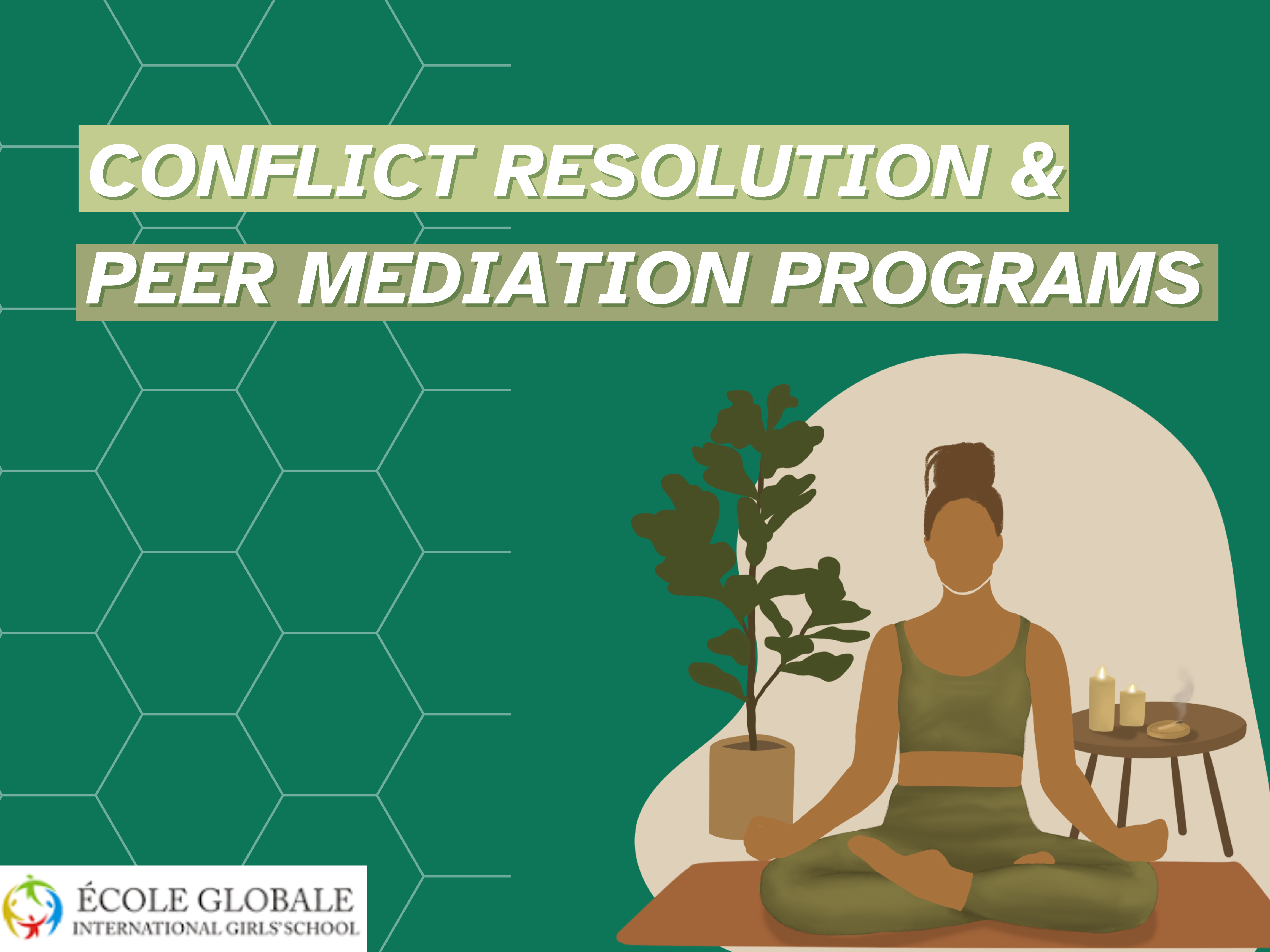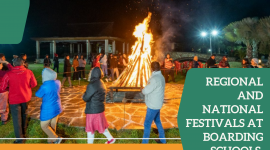In the picturesque city of Dehradun, nestled in the foothills of the Himalayas, the boarding schools in Dehradun have established themselves as paragons of holistic education.
These institutions are renowned not only for their academic excellence but also for their commitment to nurturing well-rounded individuals.
A crucial aspect of this holistic development is the emphasis on conflict resolution and peer mediation programs. These programs play an integral role in creating a harmonious school environment and equipping students with essential life skills.
The Importance of Conflict Resolution and Peer Mediation

Conflict is an inevitable part of life, and the microcosm of a boarding school in Dehradun is no exception.
From minor disagreements to more serious disputes, conflicts can arise among students, between students and staff, or within peer groups.
Addressing these conflicts effectively is essential for maintaining a positive and conducive learning environment.
Conflict resolution and peer mediation programs are designed to manage and resolve these disputes constructively.
- Promoting Emotional Intelligence: These programs help students develop emotional intelligence by teaching them to understand and manage their emotions, empathize with others, and navigate social complexities.
- Enhancing Communication Skills: Effective conflict resolution requires clear and empathetic communication. Students learn to express their thoughts and feelings appropriately and listen actively to others.
- Building Problem-Solving Abilities: Through structured mediation sessions, students learn to identify the root causes of conflicts and develop creative solutions, fostering critical thinking and problem-solving skills.
- Fostering a Positive School Climate: A systematic approach to conflict resolution contributes to a safer and more inclusive school environment, reducing incidents of bullying and violence.
Implementation in Boarding Schools in Dehradun

Boarding schools in Dehradun, such as Ecole Globale, have pioneered comprehensive conflict resolution and peer mediation programs. These initiatives are embedded in the school culture and are supported by trained staff and student mediators.
- Training and Development: Schools invest in training both staff and students in conflict resolution techniques and mediation processes. Workshops and seminars by experts in the field are regularly conducted to keep the participants updated with the latest strategies.
- Peer Mediation Teams: Selected students are trained as peer mediators. These students are equipped with skills to handle conflicts among their peers, providing a relatable and approachable resource for their fellow students.
- Conflict Resolution Curriculum: Some schools integrate conflict resolution into their curriculum through life skills classes. This ensures that all students receive formal education on managing conflicts.
- Counseling and Support Services: Professional counselors play a vital role in conflict resolution. They offer one-on-one support and guidance to students, helping them navigate personal and interpersonal challenges.
- Restorative Practices: Schools employ restorative practices, focusing on repairing relationships rather than punishing wrongdoers. This approach emphasizes accountability and reconciliation, promoting long-term harmony.
Case Study: Ecole Globale International Girls’ School

Ecole Globale International Girls’ School stands as a beacon of excellence among boarding schools in Dehradun, particularly in the realm of conflict resolution and peer mediation. The school’s robust program is a testament to its commitment to fostering a nurturing and supportive environment.
- Peer Mediation Program: Ecole Globale’s peer mediation program involves selecting students who demonstrate leadership qualities and empathy. These mediators undergo rigorous training to handle conflicts ranging from minor disagreements to more complex issues. They facilitate mediation sessions, helping their peers articulate their concerns and work towards mutually acceptable solutions.
- Conflict Resolution Workshops: The school organizes regular workshops and interactive sessions on conflict resolution. These sessions are conducted by experts and cover various aspects such as anger management, effective communication, and negotiation skills.
- Incorporating Technology: Leveraging technology, Ecole Globale has introduced digital platforms where students can anonymously seek mediation or counseling. This ensures that students who may feel hesitant to approach someone in person still have access to support.
- Parental Involvement: Recognizing the role of parents in the holistic development of students, Ecole Globale involves parents in the conflict resolution process. Workshops and communication channels are established to educate parents on supporting their children through conflicts.
Benefits of Conflict Resolution and Peer Mediation Programs

The benefits of these programs extend beyond the immediate resolution of conflicts, imparting lifelong skills and contributing to the overall development of students.
- Improved Academic Performance: A peaceful and supportive school environment enhances students’ focus and engagement, leading to better academic outcomes.
- Personal Growth: Students develop resilience, self-awareness, and empathy, which are crucial for personal growth and future success.
- Strengthened Relationships: Effective conflict resolution fosters stronger relationships among students and between students and staff, creating a close-knit school community.
- Reduced Incidents of Bullying: With a proactive approach to conflict management, incidents of bullying and aggression are significantly reduced.
- Preparedness for the Future: The skills learned through these peer mediation programs prepare students for future challenges in their personal and professional lives, making them better equipped to handle conflicts constructively.
Challenges and Future Directions

While the benefits are clear, implementing conflict resolution and peer mediation programs is not without challenges. These include:
- Cultural Resistance: There may be resistance from students, parents, or staff who are accustomed to traditional disciplinary approaches. Overcoming this requires persistent effort and demonstration of the program’s effectiveness.
- Sustained Training: Continuous training and professional development are essential to keep up with evolving techniques and ensure the effectiveness of the programs.
- Resource Allocation: Adequate resources, including trained personnel and financial investment, are necessary to sustain these peer mediation programs.
Looking ahead, schools in Dehradun can enhance these programs by:
- Expanding Digital Platforms: Utilizing technology to offer virtual mediation and conflict resolution resources can increase accessibility and convenience for students.
- Collaborative Initiatives: Schools can collaborate with each other and with organizations specializing in conflict resolution to share best practices and resources.
- Research and Feedback: Regular research and feedback mechanisms can help in assessing the effectiveness of the programs and making necessary adjustments.
- Holistic Integration: Integrating conflict resolution with other aspects of school life, such as sports and extracurricular activities, can reinforce the skills learned in a practical context.
Conclusion
Boarding schools in Dehradun, exemplified by Ecole Globale International Girls’ School, are leading the way in implementing conflict resolution and peer mediation programs.
These initiatives are crucial for creating a harmonious school environment and equipping students with essential life skills.
As these programs continue to evolve, they promise to make significant contributions to the holistic development of students, preparing them for a future where they can navigate conflicts with confidence and empathy.
Through continuous effort, innovation, and collaboration, boarding schools in Dehradun are setting a benchmark for educational excellence and student well-being.









